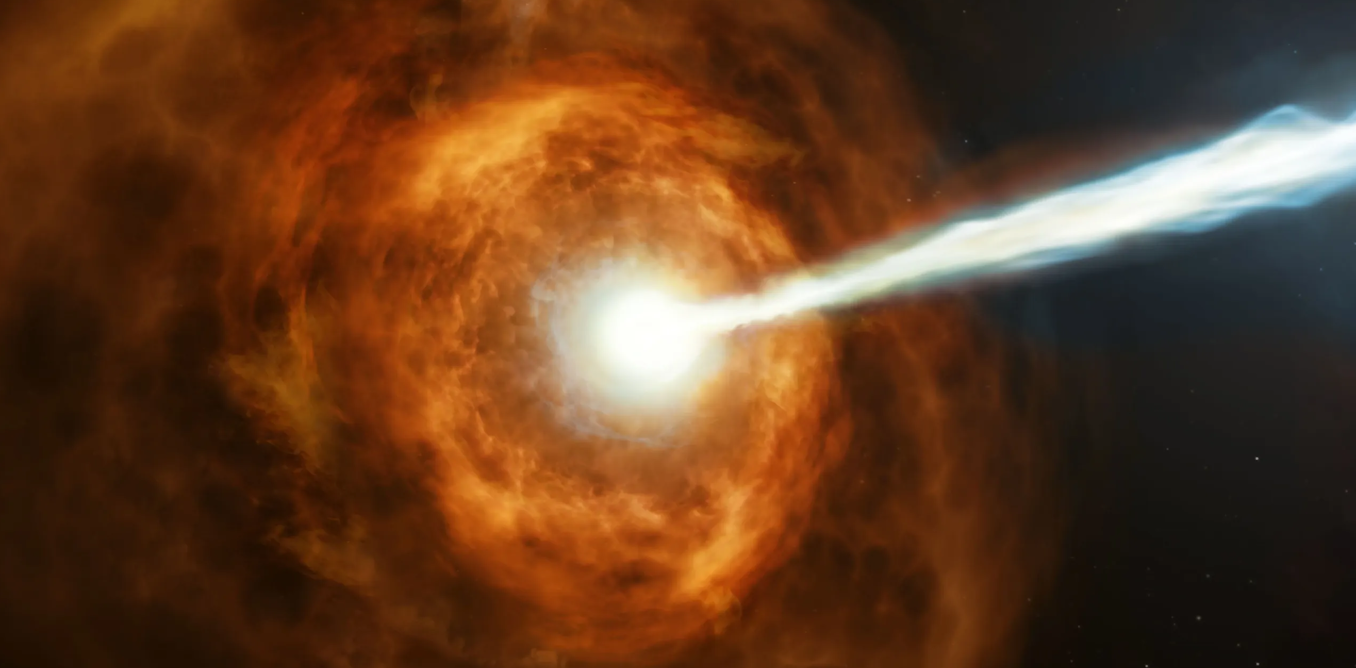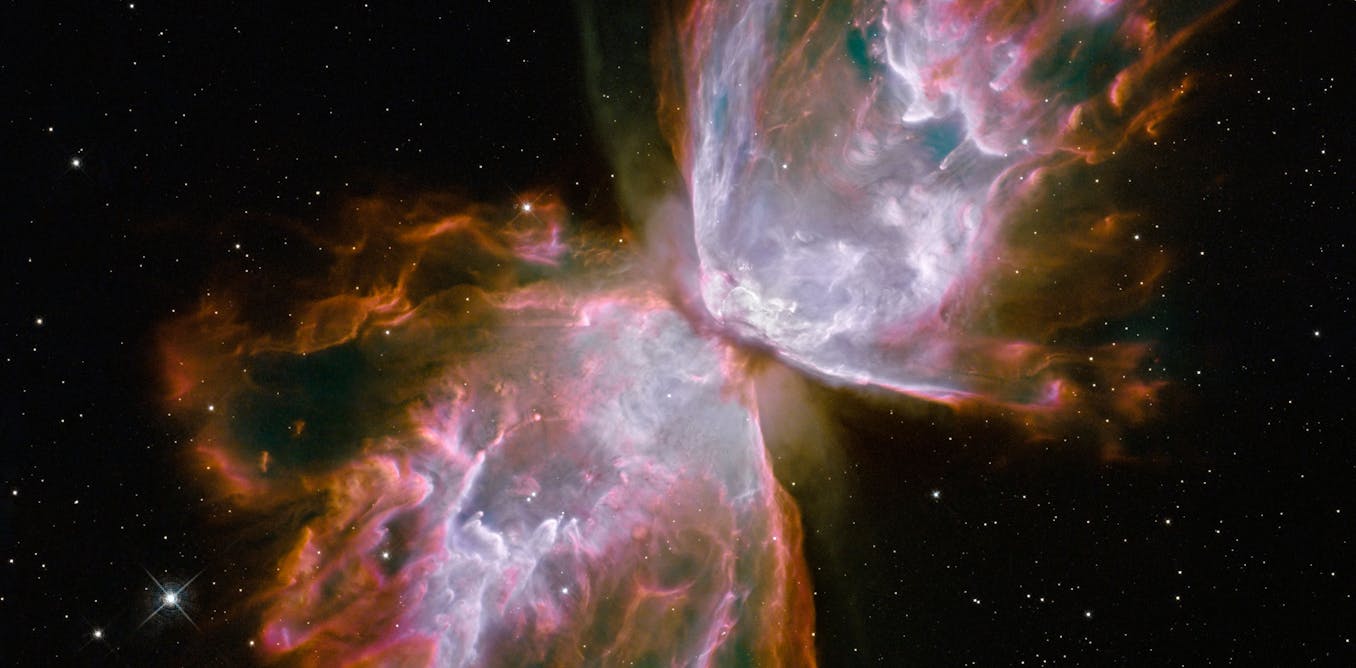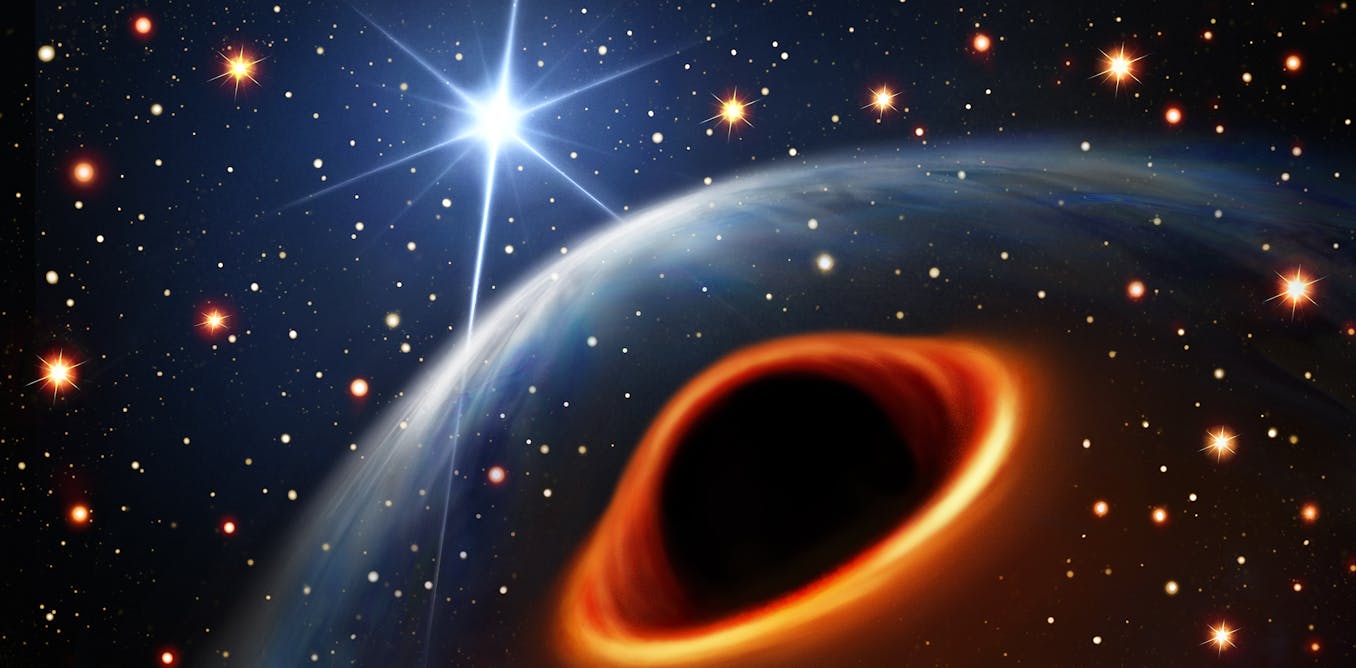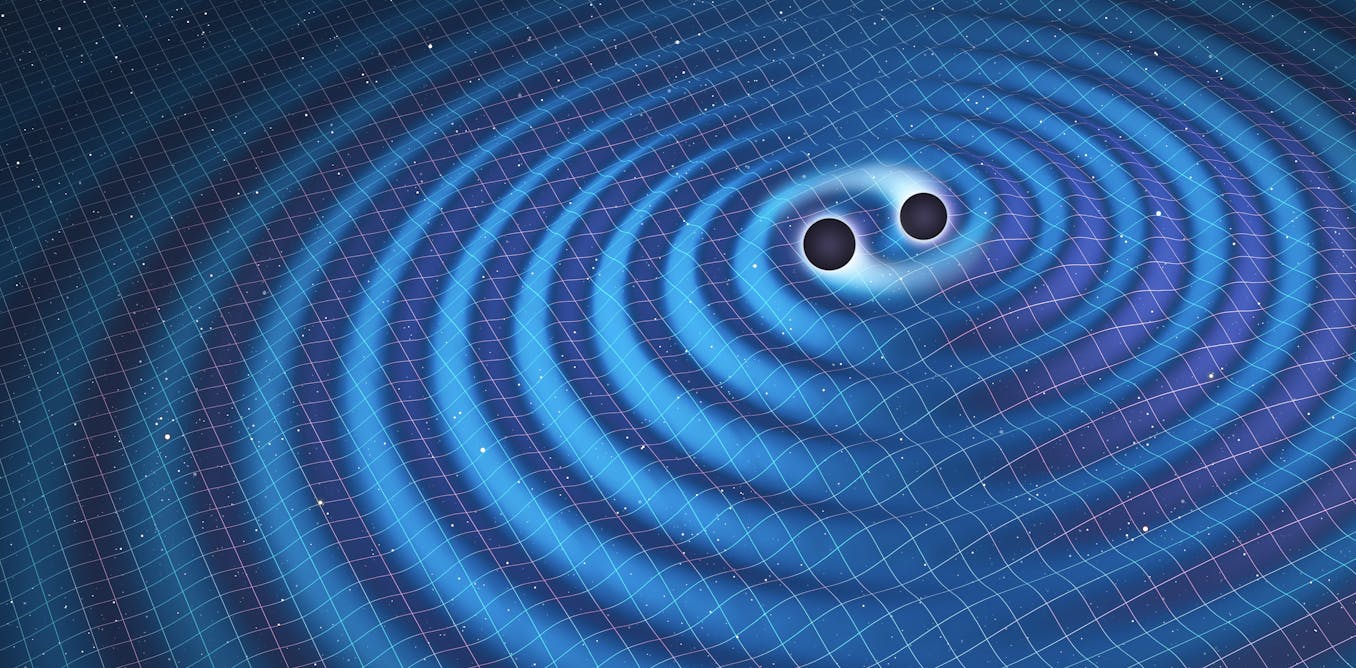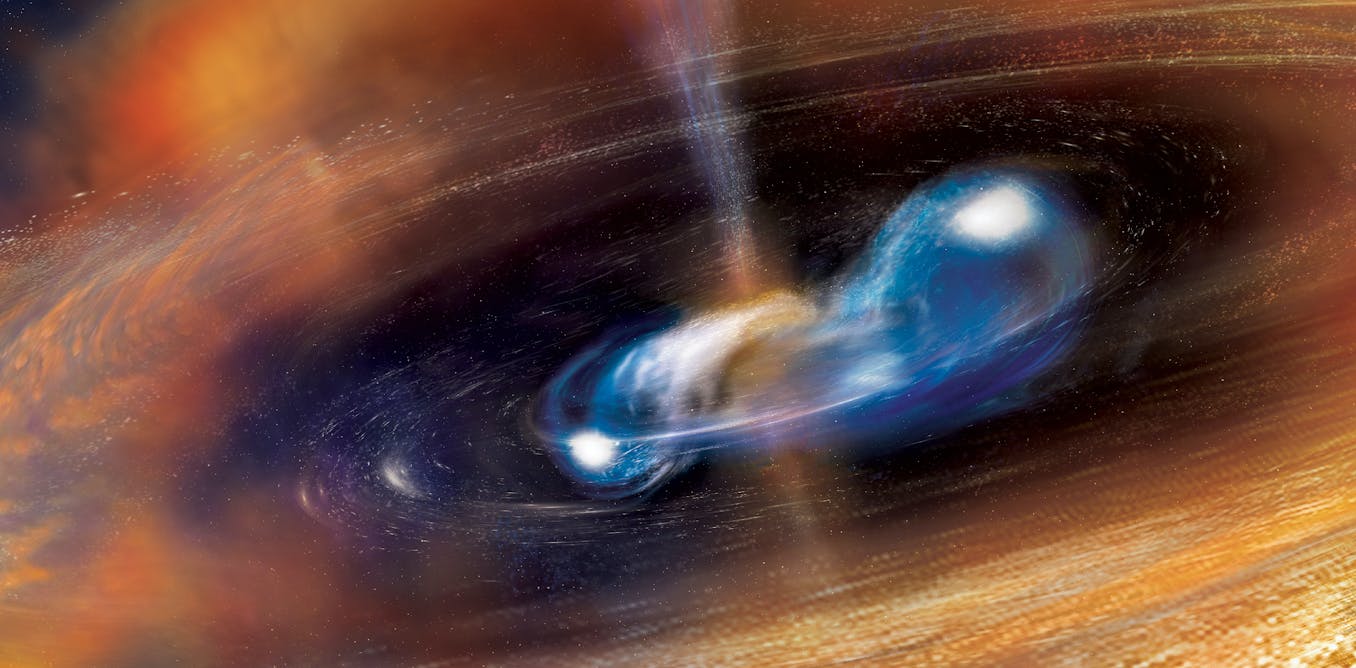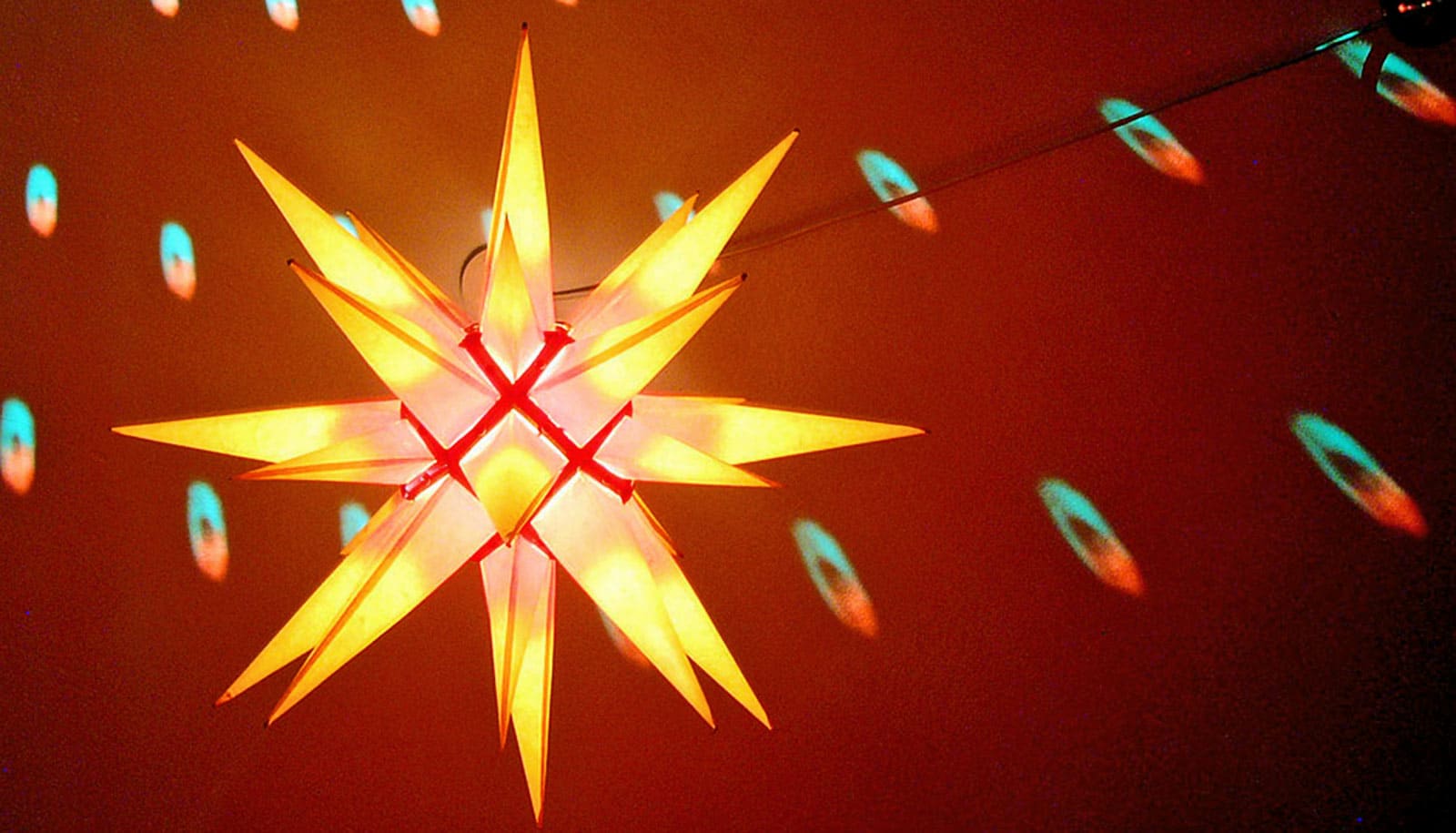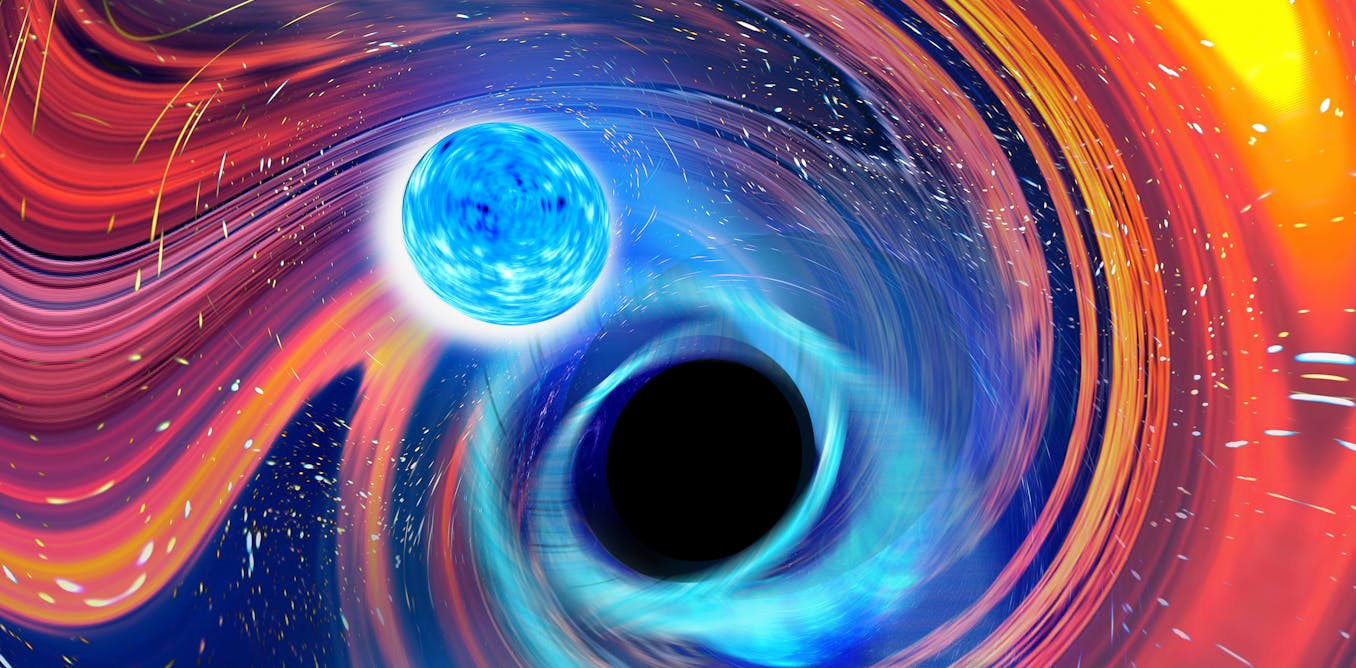Some black holes at the centers of galaxies have a buddy − but detecting these binary pairs isn’t easy
Most objects in the universe have been around for way longer than modern astronomy – digging into historical records can help scientists shed light on a cosmic mystery.
Dec. 5, 2024 • ~9 min



